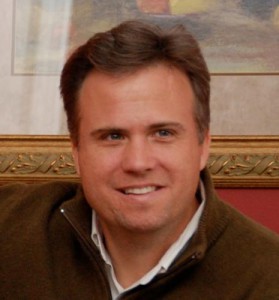
Waging Peace
By Leah Bolger, WarIsACrime.org
Pauling Lecture, Oregon State University, Power Point
Good evening. I want to thank the committee for inviting me to speak with you this evening—it is such a pleasure to be here.
When I received the letter from Professor Clinton congratulating me on being nominated as the 30th person to receive the Ava Helen and Linus Pauling Memorial Lectureship for World Peace, I was stunned! After I went to the website and read the names of the 29 others who had given this lecture in years past, I became increasingly filled with a sense of honor, humility and gratitude that I had been chosen to follow in the footsteps of such notable intellectuals and activists as ***John Kenneth Galbraith, William Sloane Coffin, Noam Chomsky, Robert Kennedy Jr., and Grace Lee Boggs, not to mention the 8 Nobel Laureates: ***Linus Pauling, Adolfo Perez Esquivel, Mairead Maguire, Oscar Arias Sanchez, Jose Ramos-Horta, Betty Williams, Rigoberta Menchu, and Jody Williams. And now my name was going to be added to this prestigious list. I started feeling a strong sense of burden and responsibility to live up to the honor that had been given me. What could I possibly tell an audience that would be worthy of this lectureship? Even calling it a “lecture” gave me a sense of responsibility that I have not felt with any other speech or presentation that I have given. Although I enjoy telling people that by serving 20 years on Active Duty in the Navy, I am now able to live off of my military pension and work as a full-time volunteer peace activist, I have only been an “activist” for the past 6 years or so—a relative novice compared to so many others who have dedicated their lives to peace and justice. And so, I went very quickly from feeling elated that I had been chosen to give this lecture, to feeling a bit inadequate and unsure of what to say.
But the more I thought about it, the more I came to realize that perhaps I had been chosen to give this lecture precisely because I was not a big name celebrity, or a Nobel Laureate. Maybe I had been chosen because I am like so many of us—just someone who is outraged by injustice, and plugging along in the trenches, trying to exact change on the issues we believe in. Maybe I could use this opportunity to speak with you, not to “lecture” you, but perhaps to encourage and motivate you to realize the power of our potential as activists. The fact is that you don’t have to be a Nobel Laureate to make a difference. The work of most activists will never be recognized outside of their own communities, but we must remember that the power of activism is about all of us contributing a little. These little contributions, when coupled with the actions of others, multiply in their power exponentially.
Continue reading “David Swanson: Leah Bolger on Waging Peace”



 The tailfin of a 1959 Cadillac. Although bold, the tailfins of the 1959 Plymouth Fury and the limited production Superbird and Dodge Daytona dwarfed GM’s excesses. Source:
The tailfin of a 1959 Cadillac. Although bold, the tailfins of the 1959 Plymouth Fury and the limited production Superbird and Dodge Daytona dwarfed GM’s excesses. Source: 
